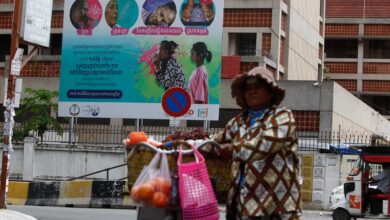
Tropical disease vector mosquito biting human skin and sucking blood, known carrier of chikungunya, dengue and yellow fever. Photo Credit: Joao Paulo Burini/Getty Images
Health ColombiaBacteria-Infected Mosquitos Help Eradicate Dengue
Mosquitoes infected with a virus-blocking bacteria have been released in three Colombian interconnected cities, effectively reducing the transmission of dengue by up to 97%, proof that this initiative could potentially curb the spread of the virus across the world.
“This is the largest continuous release of Wolbachia anywhere in the world, releasing across more than three million people,” explains Dr. Katie Anders, director of impact assessment at the World Mosquito Program (WMP). “That really demonstrates the scalability of the method, which is important for the tropical cities where the biggest burden of dengue currently sits.”
Male and female mosquitoes were infected with Wolbachia, a bacteria that doesn’t affect the Aedes Aegypti mosquito responsible for the spread of arboviruses such as dengue, chikungunya, and Zika, then released in Colombia’s Aburrá Valley – Medellín, Bello, and Itagüí – between 2017 and 2020. The incidence of dengue – also called ‘break bone fever’ because of the severe muscle and joint pain it triggers – fell by between 94% and 97%, with the lowest number of cases in 20 years. The approach is self-sustainable because the bacteria is passed to new generations when infected mosquitoes mate. The infected mosquitoes initiative spearheaded by the WMP has been launched in 12 countries including Indonesia where the number of dengue cases dropped by 77% on Java alone.



